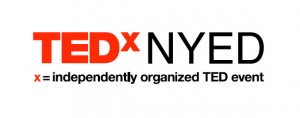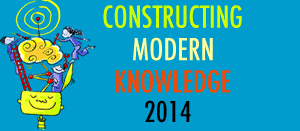While co-hosting the TEDxNYED event last week, I found myself wondering how the amazing solutions I was hearing could spread. How could we get more students connecting globally like Brian Crosby’s kids; how could more at-risk students be freed from the assessment and curriculum that failed them so they could excel like the students Gary Stager worked with in the Maine prison; how could every urban school be part of an urban garden network teaching youth and the community about low cost, healthy food… the list was endless.
It struck me that day - some problems are so big they need small solutions.
I heard several people say after these talks - “Yes, sure, that was great, BUT IS IT SCALABLE?”
I’d always considered that a reasonable question. But now, I think it’s a rhetorical trick that really means. “CAN IT FIT INTO THE CURRENT SYSTEM?”
Scalable should mean replication. Can you do “it” - whatever “it” is, over and over again. And the answer is yes, you can have urban gardens, do away with 19th century curriculum, and have globally connected classrooms IF you let the conditions flourish on the ground level. IF you let the teachers teach and the students learn. IF you let the solution be a small solution, carried out at a human scale. IF it remains a local, adaptable solution that meets the needs of the participants, not the system. The proof of that was given by Dennis Littky of the Big Picture Schools, who has started over 60 schools that value each and every student. That’s scalability.
But it doesn’t mean you impose a solution from above, put layers of bureaucracy and administration on it, and add untold costs in demanding that everyone do the same thing. We are just used to doing things that way in American education and we’ve convinced ourselves that it’s cheaper, more efficient, and the American Way. It’s not. Every problem is not a moonshot or the same as building interstate highways. Learning is certainly not.
Big problems require small solutions. And they demand we trust in the human beings implementing those solutions. My thought for the day.
Sylvia
PS - The videos from TEDxNYED are not up on the site yet - when they are, I’ll link them up to the examples in this post.

